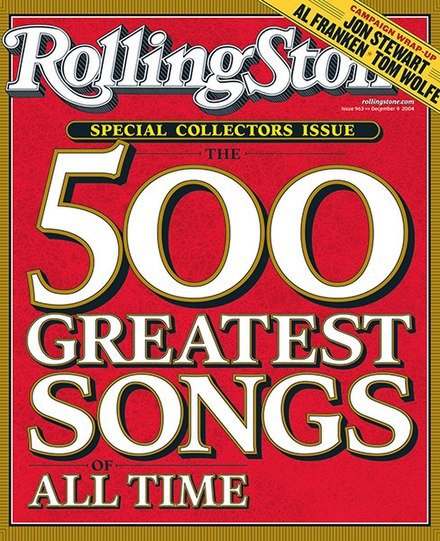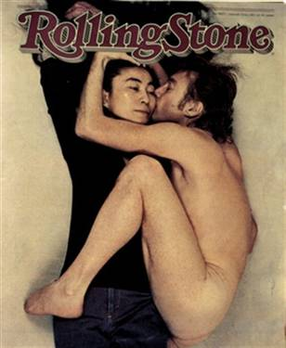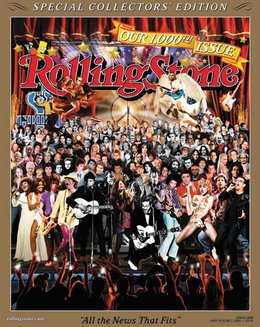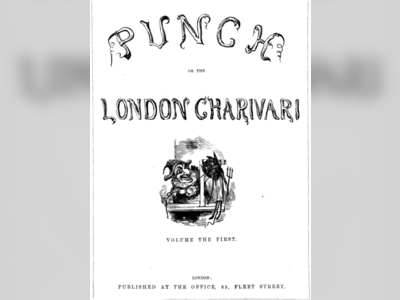British Heritage
Remember, Cherish, Learn.
beta
Rolling Stone
Contribution of Rolling Stone to British Heritage.
Rolling Stone, an iconic American monthly magazine founded in 1967 by Jann Wenner and Ralph J. Gleason, has had a significant influence on British heritage, particularly in the realms of music, popular culture, and journalism. The magazine has been instrumental in shaping the perception of rock music and its artists, not only in the United States but also globally, including the United Kingdom. Its coverage of British bands and musicians, as well as its cultural commentary, has played a vital role in bridging the gap between American and British music scenes. By featuring British artists prominently on its covers and providing in-depth interviews and articles, Rolling Stone has contributed to the global recognition and success of British acts in the music industry.
Rolling Stone's legacy can be traced back to its inception in the 1960s, during a time of immense social and cultural change. The magazine became a symbol of the counterculture movement, reflecting the youth's rebellious spirit and desire for social and political change. Its political reporting by renowned journalist Hunter S. Thompson introduced a new form of immersive, first-person journalism known as "gonzo journalism," which blended fact and fiction to provide a unique perspective on American politics.
Over the years, Rolling Stone evolved to embrace various aspects of popular culture, including film, television, and entertainment. Its provocative photography and iconic cover photos featuring musicians, actors, and political figures have become synonymous with the magazine's brand. By featuring legendary artists like John Lennon and The Beatles on its covers, Rolling Stone became an authority on music and a platform for music enthusiasts to explore the latest trends and discover emerging talents.
The magazine's commitment to journalistic standards and in-depth reporting has helped maintain its credibility over the decades. It has provided a platform for both established and aspiring writers, contributing to the growth of music journalism as a respected genre. Through its extensive coverage of concerts, festivals, and events, Rolling Stone has documented the evolution of music genres and the emergence of new trends, leaving an indelible mark on the history of music and pop culture.
Rolling Stone's contribution to British heritage is multi-faceted. Its extensive coverage of British music, artists, and cultural movements has introduced British acts to a global audience and played a crucial role in cementing the UK's position as a significant force in the music industry.
The magazine's early support of British bands, such as The Beatles, The Rolling Stones, and The Who, helped propel these acts to international fame. By featuring these bands on its covers and providing in-depth articles, Rolling Stone contributed to their popularity and recognition worldwide.
Furthermore, Rolling Stone's coverage of British rock and pop bands of the 1970s, including Led Zeppelin, Pink Floyd, and David Bowie, showcased the diversity and richness of British music. The magazine's reviews, interviews, and features provided valuable insights into the artists' creative processes, contributing to the appreciation and understanding of British music among global audiences.
The magazine's influence extended beyond music to cover broader cultural movements, such as the British punk rock explosion of the late 1970s. Rolling Stone's reporting on bands like The Sex Pistols and The Clash helped bring the punk movement to the attention of American audiences and contributed to its global impact on music and fashion.
In recent years, Rolling Stone has continued to highlight emerging British talent, including contemporary artists from various genres. Its coverage of British musicians, such as Adele, Ed Sheeran, and Arctic Monkeys, has supported their rise to international stardom and solidified their place in music history.
Moreover, the magazine's commentary on social and political issues has fostered a deeper understanding of British society and its impact on global affairs. By covering significant events and political movements in the UK, Rolling Stone has contributed to shaping public discourse and encouraging cross-cultural dialogue.
Rolling Stone's success can be attributed to its ability to adapt and evolve with changing cultural and media landscapes. From its early roots in the counterculture movement to its embrace of digital media and online publishing, the magazine has maintained its relevance and continued to attract a diverse readership.
The magazine's comprehensive coverage of music, entertainment, politics, and culture has attracted a loyal and passionate readership over the years. Its reputation for insightful journalism and high-quality content has made it a trusted source for music enthusiasts, cultural critics, and industry professionals.
Rolling Stone's iconic covers, featuring some of the biggest names in music, entertainment, and politics, have become collector's items and a visual representation of the magazine's influence. The magazine's ability to secure exclusive interviews and access to high-profile figures has further solidified its position as a leading authority in journalism and popular culture.
In recent years, the magazine's expansion into digital media and international editions has allowed it to reach a broader global audience. Its website, Rollingstone.com, serves as a hub for music news, reviews, and feature articles, attracting millions of readers from around the world.
The magazine's impact on the music industry and popular culture is immeasurable. It has influenced the way music is perceived, marketed, and consumed, shaping the tastes and preferences of generations of music fans. Its coverage of major events, concerts, and festivals has provided a historical record of the evolution of music and its cultural significance.
Rolling Stone is an American monthly magazine founded in San Francisco, California, in 1967 by Jann Wenner and Ralph J. Gleason. It focuses on music, politics, and popular culture, making it one of the most influential publications in the world of entertainment and journalism.
The first issue of Rolling Stone was released on November 9, 1967, featuring John Lennon on the cover in costume for the film "How I Won the War." The magazine started as a bi-weekly newspaper format, with a lead article covering the Monterey Pop Festival and a cover price of 25 cents.
The magazine's name was inspired by the blues song "Rollin' Stone" recorded by Muddy Waters and Bob Dylan's hit single "Like a Rolling Stone." In its early years, Rolling Stone identified with the counterculture of the era but distanced itself from the radical politics of the underground press.
Over the years, Rolling Stone has become known for its political coverage, featuring the work of prominent journalists like Hunter S. Thompson. It has also played a vital role in launching the careers of numerous writers and authors.
Rolling Stone has faced criticism over the years, including accusations of generational bias and controversial cover stories. However, it has maintained its status as a leading publication in the music and entertainment industry.
In recent years, Rolling Stone's ownership has changed hands, and the magazine has expanded its digital presence with the launch of Rollingstone.com. It also introduced international editions to reach a broader global audience. Rolling Stone's legacy and cultural impact continue to shape the music and entertainment landscape worldwide.
Legacy of Rolling Stone
Rolling Stone's legacy can be traced back to its inception in the 1960s, during a time of immense social and cultural change. The magazine became a symbol of the counterculture movement, reflecting the youth's rebellious spirit and desire for social and political change. Its political reporting by renowned journalist Hunter S. Thompson introduced a new form of immersive, first-person journalism known as "gonzo journalism," which blended fact and fiction to provide a unique perspective on American politics.
Over the years, Rolling Stone evolved to embrace various aspects of popular culture, including film, television, and entertainment. Its provocative photography and iconic cover photos featuring musicians, actors, and political figures have become synonymous with the magazine's brand. By featuring legendary artists like John Lennon and The Beatles on its covers, Rolling Stone became an authority on music and a platform for music enthusiasts to explore the latest trends and discover emerging talents.
The magazine's commitment to journalistic standards and in-depth reporting has helped maintain its credibility over the decades. It has provided a platform for both established and aspiring writers, contributing to the growth of music journalism as a respected genre. Through its extensive coverage of concerts, festivals, and events, Rolling Stone has documented the evolution of music genres and the emergence of new trends, leaving an indelible mark on the history of music and pop culture.
Contribution to British Heritage
Rolling Stone's contribution to British heritage is multi-faceted. Its extensive coverage of British music, artists, and cultural movements has introduced British acts to a global audience and played a crucial role in cementing the UK's position as a significant force in the music industry.
The magazine's early support of British bands, such as The Beatles, The Rolling Stones, and The Who, helped propel these acts to international fame. By featuring these bands on its covers and providing in-depth articles, Rolling Stone contributed to their popularity and recognition worldwide.
Furthermore, Rolling Stone's coverage of British rock and pop bands of the 1970s, including Led Zeppelin, Pink Floyd, and David Bowie, showcased the diversity and richness of British music. The magazine's reviews, interviews, and features provided valuable insights into the artists' creative processes, contributing to the appreciation and understanding of British music among global audiences.
The magazine's influence extended beyond music to cover broader cultural movements, such as the British punk rock explosion of the late 1970s. Rolling Stone's reporting on bands like The Sex Pistols and The Clash helped bring the punk movement to the attention of American audiences and contributed to its global impact on music and fashion.
In recent years, Rolling Stone has continued to highlight emerging British talent, including contemporary artists from various genres. Its coverage of British musicians, such as Adele, Ed Sheeran, and Arctic Monkeys, has supported their rise to international stardom and solidified their place in music history.
Moreover, the magazine's commentary on social and political issues has fostered a deeper understanding of British society and its impact on global affairs. By covering significant events and political movements in the UK, Rolling Stone has contributed to shaping public discourse and encouraging cross-cultural dialogue.
Success of Rolling Stone
Rolling Stone's success can be attributed to its ability to adapt and evolve with changing cultural and media landscapes. From its early roots in the counterculture movement to its embrace of digital media and online publishing, the magazine has maintained its relevance and continued to attract a diverse readership.
The magazine's comprehensive coverage of music, entertainment, politics, and culture has attracted a loyal and passionate readership over the years. Its reputation for insightful journalism and high-quality content has made it a trusted source for music enthusiasts, cultural critics, and industry professionals.
Rolling Stone's iconic covers, featuring some of the biggest names in music, entertainment, and politics, have become collector's items and a visual representation of the magazine's influence. The magazine's ability to secure exclusive interviews and access to high-profile figures has further solidified its position as a leading authority in journalism and popular culture.
In recent years, the magazine's expansion into digital media and international editions has allowed it to reach a broader global audience. Its website, Rollingstone.com, serves as a hub for music news, reviews, and feature articles, attracting millions of readers from around the world.
The magazine's impact on the music industry and popular culture is immeasurable. It has influenced the way music is perceived, marketed, and consumed, shaping the tastes and preferences of generations of music fans. Its coverage of major events, concerts, and festivals has provided a historical record of the evolution of music and its cultural significance.
General Information about Rolling Stone
Rolling Stone is an American monthly magazine founded in San Francisco, California, in 1967 by Jann Wenner and Ralph J. Gleason. It focuses on music, politics, and popular culture, making it one of the most influential publications in the world of entertainment and journalism.
The first issue of Rolling Stone was released on November 9, 1967, featuring John Lennon on the cover in costume for the film "How I Won the War." The magazine started as a bi-weekly newspaper format, with a lead article covering the Monterey Pop Festival and a cover price of 25 cents.
The magazine's name was inspired by the blues song "Rollin' Stone" recorded by Muddy Waters and Bob Dylan's hit single "Like a Rolling Stone." In its early years, Rolling Stone identified with the counterculture of the era but distanced itself from the radical politics of the underground press.
Over the years, Rolling Stone has become known for its political coverage, featuring the work of prominent journalists like Hunter S. Thompson. It has also played a vital role in launching the careers of numerous writers and authors.
Rolling Stone has faced criticism over the years, including accusations of generational bias and controversial cover stories. However, it has maintained its status as a leading publication in the music and entertainment industry.
In recent years, Rolling Stone's ownership has changed hands, and the magazine has expanded its digital presence with the launch of Rollingstone.com. It also introduced international editions to reach a broader global audience. Rolling Stone's legacy and cultural impact continue to shape the music and entertainment landscape worldwide.
- Rolling Stoneen.wikipedia.org








